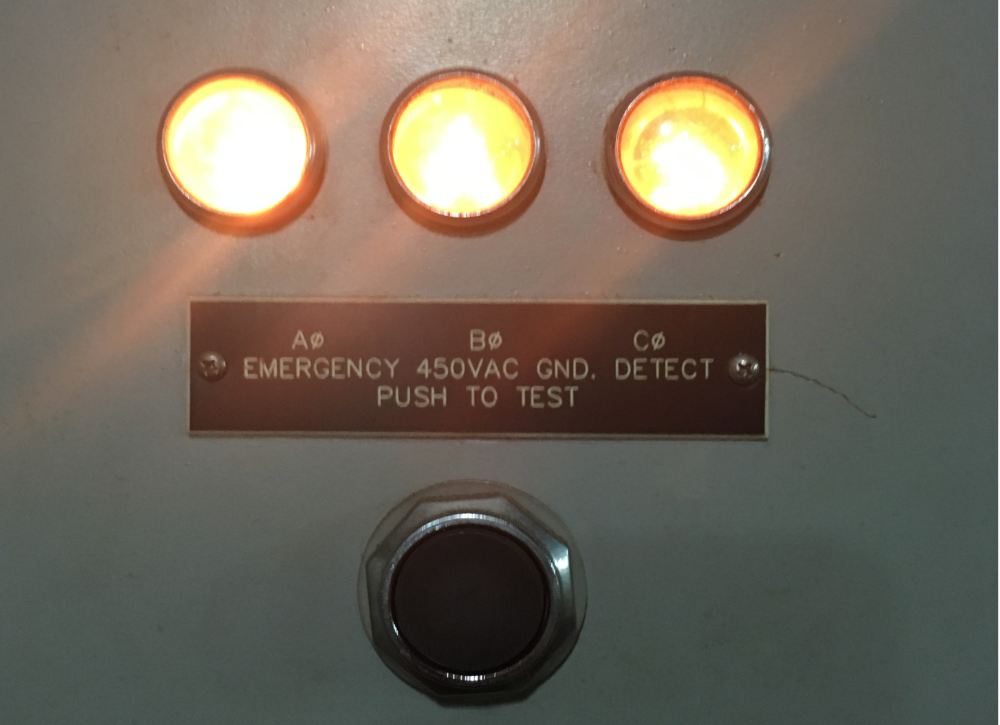Subsection 4.3.5 Circuit Faults
Circuit faults or malfunctions can usually be grouped into one of the following categories:
An open circuit occurs when the conducting path has been broken, intentionally or unintentionally, stopping the flow of current. An open occurs when a switch is opened, a fuse blows or a circuit breaker trips, or when a wire breaks or becomes disconnected. The resistance of an open circuit is effectively infinite.
A short circuit is an unintentional low-resistance pathway between two points at different voltage levels. Shorts can occur between two points in the same circuit, or between a single point and ground.
By Ohm’s law, when the resistance is small the resulting current will be large. Large short circuit currents can lead to overheating, damage, fire hazards or arc flash. Electric shock may be caused by a short circuit through the human body.
In a properly protected circuit, a circuit breaker or fuse should quickly open to interrupt the short circuit current.
Short circuits can are caused by faulty or incorrect wiring, insulation failure, and particularly by human error.
A ground fault occurs when an electric circuit unintentionally contacts the earth or the ship’s hull. This connection allows current to return to the source through an unintended path.
Ground faults are caused by insulation failure due to age, abrasion, abuse, and especially due to moisture, either from the humidity or by direct water impingement. Salt water infiltration is a common cause of ground faults in deck equipment. When a person accidentally contacts a live wire and ground at the same time, the resulting shock is actually a ground fault.
Aboard ship, we continuously monitor for ground faults using ground lamps and ground ammeters. When a ground fault is detected the ship’s engineers repair them as soon as possible to prevent bigger problems such as equipment failure.


Ground faults are different than short circuits because the ground fault current is usually too small to trip a circuit breaker or blow a fuse. Ground fault circuit interrupters, like those found in your bathroom at home, are designed to detect these small ground currents and quickly open to prevent electrical shock.

